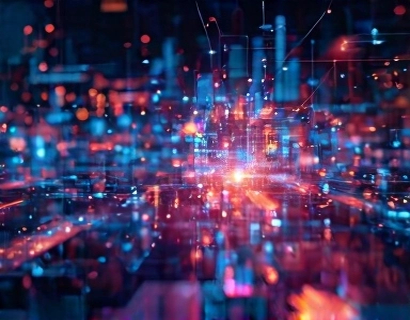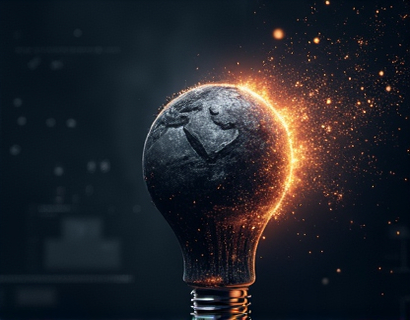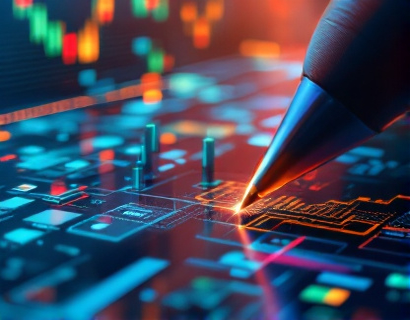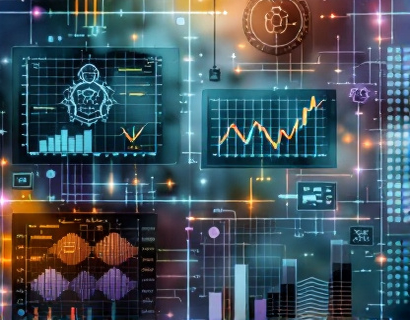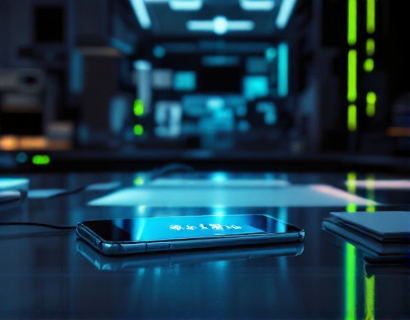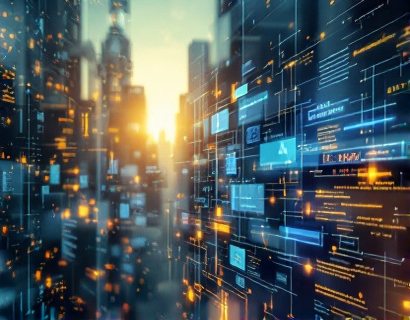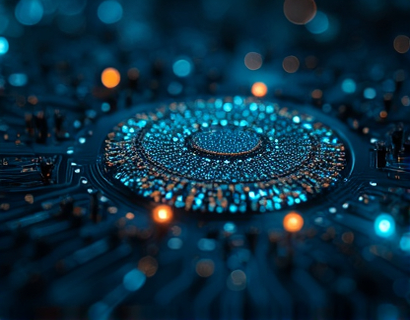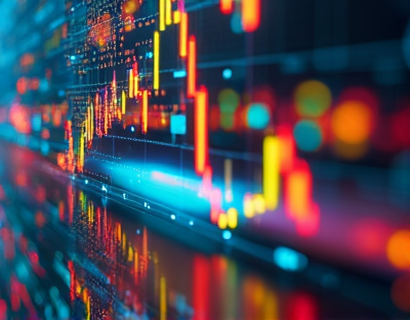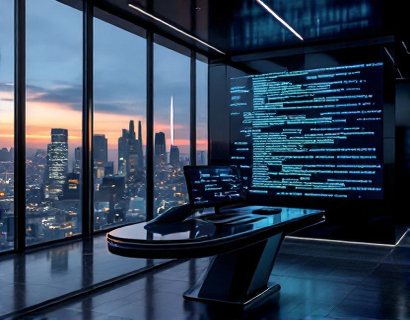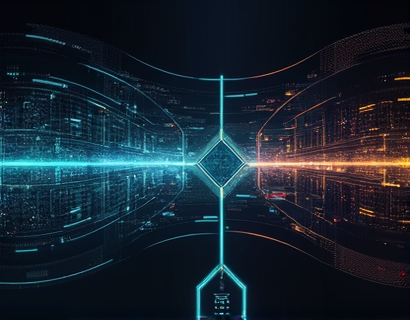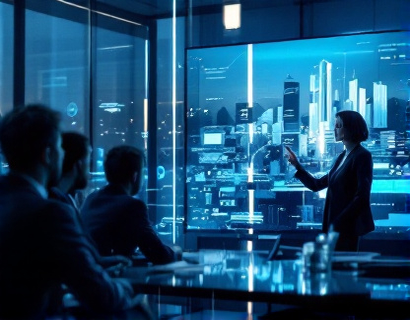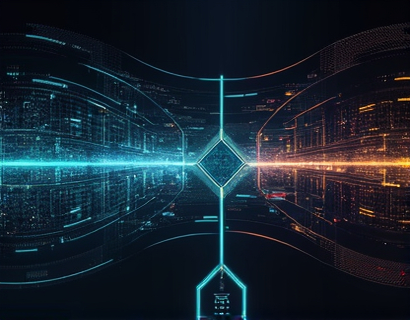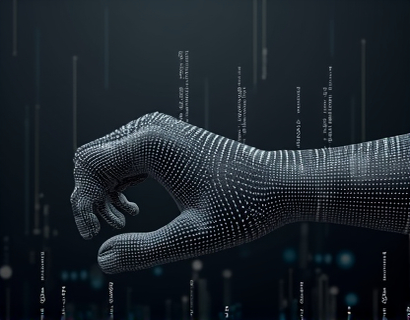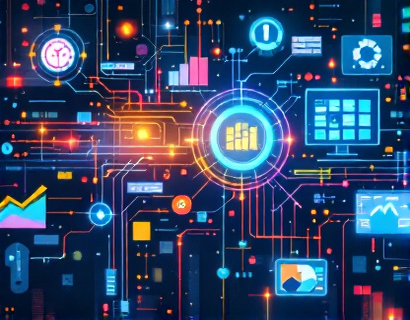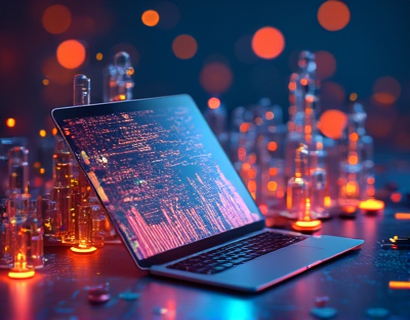Decentralized Innovation: Leveraging AI and Crypto for Enhanced Digital Transformation
The intersection of artificial intelligence (AI) and blockchain technology is giving rise to a new era of digital transformation. This convergence is not just a technological advancement but a paradigm shift that is redefining how we interact with digital systems and unlocking unprecedented growth opportunities in the decentralized economy. For tech professionals and enthusiasts, understanding the synergy between AI, blockchain, and decentralized applications (dApps) is crucial for navigating the future of technology.
The traditional centralized models of technology are being challenged by decentralized systems that prioritize transparency, security, and user control. AI, with its ability to process vast amounts of data and learn from patterns, when combined with the immutable and transparent nature of blockchain, creates a powerful toolkit for innovation. This article delves into the transformative impact of this merger, exploring how it is reshaping digital experiences and opening new avenues for growth.
Understanding the Basics: AI and Blockchain
To grasp the potential of decentralized innovation, it's essential to first understand the fundamentals of AI and blockchain technology. AI refers to the simulation of human intelligence processes by machines, particularly computer systems. These processes include learning (the acquisition of information and rules for using it), reasoning (using rules to reach approximate or definite conclusions), and self-correction. AI technologies such as machine learning, natural language processing, and computer vision are revolutionizing industries from healthcare to finance.
Blockchain, on the other hand, is a distributed ledger technology that ensures transparency, security, and immutability in data transactions. It operates on a peer-to-peer network where data is stored across multiple nodes, making it resistant to tampering and censorship. The use of cryptographic algorithms ensures that once data is recorded on the blockchain, it cannot be altered without consensus from the network participants.
The combination of AI and blockchain leverages the strengths of both technologies. AI can analyze and derive insights from the vast amounts of data stored on a blockchain, while blockchain can provide a secure and transparent environment for AI models to operate. This synergy is particularly powerful in decentralized applications, which are built on blockchain platforms and utilize AI to enhance functionality and user experience.
Decentralized Applications: The New Frontier
Decentralized applications, or dApps, are applications that run on a blockchain network rather than on a central server. They are governed by smart contracts, which are self-executing contracts with the terms directly written into code. This decentralized nature ensures that dApps are not controlled by any single entity, reducing the risk of censorship and increasing trust among users.
AI enhances dApps by providing intelligent and adaptive functionalities. For instance, AI-powered chatbots on a decentralized platform can offer personalized customer support, understanding user queries and providing relevant responses in real-time. Another example is AI-driven predictive analytics on a decentralized finance (DeFi) platform, which can analyze market trends and suggest optimal investment strategies to users.
The integration of AI in dApps also improves efficiency and accuracy. In supply chain management, AI can track and verify the authenticity of products using blockchain, ensuring transparency and reducing fraud. Similarly, in the healthcare sector, AI can analyze medical records stored on a blockchain to provide personalized treatment recommendations, enhancing patient care and outcomes.
Enhancing Digital Experiences through AI and Blockchain
The convergence of AI and blockchain is not only about functionality but also about enhancing the overall digital experience. User privacy and data security are paramount concerns in the digital age, and decentralized systems offer robust solutions. By storing data on a blockchain, users maintain control over their information, deciding who can access it and for what purpose. AI can further enhance this by implementing advanced encryption and anonymization techniques, ensuring that user data remains secure and private.
Personalization is another area where AI and blockchain intersect to improve digital experiences. AI algorithms can analyze user behavior and preferences, providing tailored content and recommendations. On a decentralized platform, this personalization can be achieved without compromising user privacy, as data is encrypted and stored securely. For example, a decentralized streaming service can use AI to recommend shows based on a user's viewing history, while ensuring that the data is not exposed to third parties.
Moreover, AI can optimize user interfaces and interactions on decentralized platforms. Natural language processing (NLP) can power intuitive and conversational interfaces, making it easier for users to navigate and interact with dApps. Voice-activated commands and virtual assistants can further enhance accessibility, catering to a broader range of users, including those with disabilities.
Unlocking New Growth Opportunities
The fusion of AI and blockchain is not only transformative for individual applications but also for the broader economy. Decentralized platforms powered by AI can create new business models and revenue streams. For instance, AI-driven marketplaces on blockchain can connect producers directly with consumers, eliminating intermediaries and reducing costs. This peer-to-peer model fosters innovation and entrepreneurship, as individuals and small businesses can participate in the global economy without significant barriers.
Tokenization, a process enabled by blockchain, allows assets to be represented as digital tokens. When combined with AI, tokenization can unlock new investment opportunities. AI can analyze market data and predict asset performance, helping investors make informed decisions. In the real estate sector, AI can assess property values and identify investment hotspots, while blockchain ensures transparent and secure transactions.
The decentralized economy also promotes financial inclusion. AI-powered financial services on blockchain can provide access to banking and credit facilities for underserved populations. By leveraging AI for credit scoring and risk assessment, these services can operate efficiently and fairly, reducing the reliance on traditional financial institutions.
Challenges and Considerations
Despite the immense potential, the integration of AI and blockchain in decentralized applications is not without challenges. Scalability remains a significant issue, as blockchain networks can struggle to handle high transaction volumes. AI models, particularly those requiring extensive training, can be resource-intensive, necessitating efficient and cost-effective solutions.
Regulatory uncertainty is another factor to consider. As decentralized technologies evolve, regulatory frameworks are still catching up. Ensuring compliance while maintaining the decentralized nature of these systems requires careful navigation. Additionally, the ethical use of AI, particularly in data privacy and bias mitigation, must be prioritized to build trust and ensure responsible innovation.
Interoperability between different blockchain platforms and AI systems is also crucial for widespread adoption. Standardization and collaboration among developers and organizations can help overcome these challenges, fostering a more integrated and seamless ecosystem.
Future Prospects: The Road Ahead
The future of decentralized innovation is bright, with AI and blockchain continuing to drive transformative changes. As technology advances, we can expect more sophisticated AI models that can operate more efficiently on blockchain networks. The development of layer 2 solutions and cross-chain protocols will enhance scalability and interoperability, making decentralized applications more accessible and user-friendly.
The convergence of AI and blockchain will also lead to new industries and use cases. In the realm of Internet of Things (IoT), AI can process and analyze data from millions of connected devices, while blockchain ensures secure and transparent data sharing. In the field of education, AI-powered personalized learning platforms on blockchain can provide equitable access to high-quality educational resources.
Ultimately, the synergy between AI and blockchain is poised to redefine digital transformation, offering unprecedented opportunities for growth, innovation, and inclusivity. For tech professionals and enthusiasts, staying informed and engaged with these developments is essential for harnessing the full potential of the decentralized economy.





